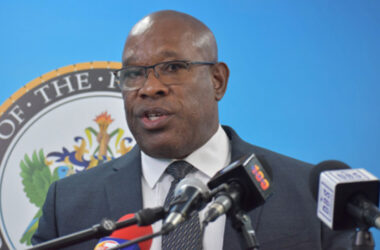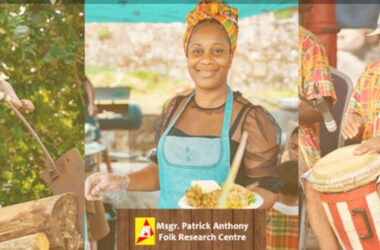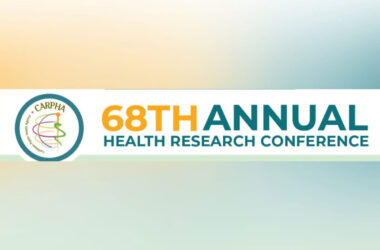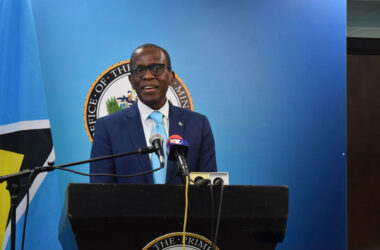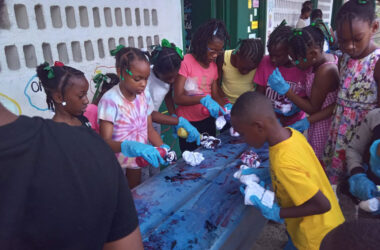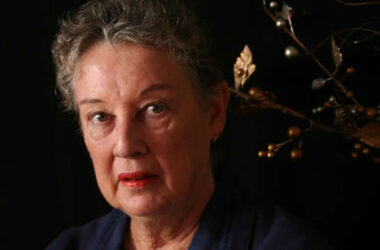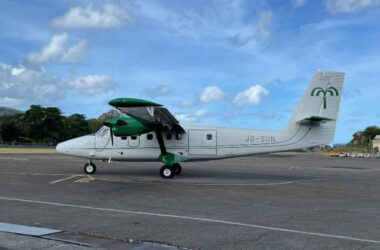CHAIRMAN of The UWI COVID-19 Task Force, Pro Vice-Chancellor, Professor Clive Landis, notes that solidarity across the Caribbean in the face of the common threat from COVID-19 has been heartening to witness.
Speaking during a Vice-Chancellor’s Forum hosted by The University of the West Indies (The UWI), on Monday, March 9 at The UWI Cave Hill Campus in Barbados, he said, “Preparedness and coordination across the Caribbean for this outbreak has been commendable, especially the readiness of the laboratory network. We have the opportunity to mount an effective containment, isolation and treatment strategy by leveraging laboratory testing for earlier identification.”
The forum, themed Partnering in the Caribbean’s Response was the second on the disease hosted by The UWI and included two panel discussions on Preparedness and Economic Impact, featuring UWI academics, and experts from regional agencies and government ministries. The first forum, held on January 30, focused on Demystifying the Coronavirus (COVID-19). These conversations are part of the regional University’s response to the threat of COVID-19. The UWI has also established a Task Force, aimed at leveraging its knowledge and experts to assist the Caribbean in its readiness and response to the outbreak.
Discussing the economic impact of the disease, Director at the Centre for Hotel and Tourism Management at The UWI, Dr Michelle McLeod noted that tourism officials estimate a one to three percent decline in tourist arrivals. However, she expressed confidence that the Caribbean region would be able to manage a potential outbreak of COVID-19. She added that the current situation may allow for more intra-regional trade among other opportunities.
Also highlighting the economic impact, Director of Economics at the Caribbean Development Bank (CDB), Dr Justin Ram stated the possible ripple effects on other sectors linked to tourism. “In some of our countries the agriculture sector provides significant inputs to the tourism industry. And if tourism is impacted, there’s a reduced demand, there’s going to be knock-on reduced demand for agriculture products; a knock-on reduced demand for the services provided by taxi drivers for example, and so this is a multiplier effect when things are good. Think about it if our arrivals come down and the reverse happens here.” He also flagged potential negative impacts on regional healthcare as well as the oil industry, particularly for countries like Trinidad and Tobago, Guyana and Suriname.
Executive Director of UWI Lumin Consulting, Senator Lisa Cummins, expressed concern about the ‘economics of fear’, which she said could also have negative impact on the Caribbean’s economy. “People are responding based on their fear of getting ill, of dying, of being infected, of interacting aboard airlines, affecting the air transportation industry, of taking a cruise, thereby affecting the cruise industry, and that is fundamentally having an impact on our tourism dependent economies. How people perceive their levels of exposure and their ability to respond to those levels of exposure, has a critical impact on how our economies will or will not function going forward,” said Cummins, who is also Chair of Barbados Port Inc.
Director of The UWI Sir Arthur Lewis Institute of Social and Economic Studies (SALISES), Dr Don Marshall, highlighted a critical role of The UWI in the region’s efforts at preventing the spread of the disease. He stated, “We’re going to see some particular changes and reactions in our labour markets in ways that we cannot anticipate…but what we as a research team and workers in different parts of the region would do is to continue to keep pace with best practices and advise on the best procedures possible,” he said.
Mr Ronald Jackson, Executive Director, Caribbean Disaster Emergency Management Agency (CDEMA) commended the University on the forum, saying, “We (at CDEMA) really look to The UWI to bring thought leadership to the issues we are all grappling with. Yes, we are experts in the field, but we do believe that the university community should bring their brain trust to help government in dealing with these issues.”
Mr Jackson also highlighted some of the opportunities that managing the threat of the COVID-19 presented, citing them as ‘good news’. He said existing processes and mechanisms established by a number of agencies that are now maturing and national pandemic plans are being effected; there is evidence of political leadership in treating with the issues across the region and improved efforts at better coordination to improve the challenge within the context of resilience building.
The ‘bad news’ he said, that we in the region need to be mindful of and address, is that the culture of preparedness and prevention is not yet fully embraced; that our emergency services are already resource constrained, and he also acknowledged that fear is negatively impacting the effective and smart preparedness.



